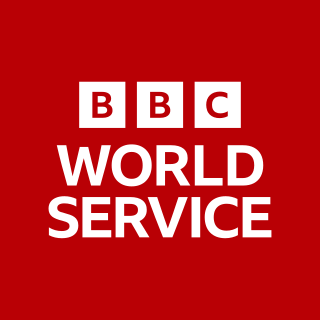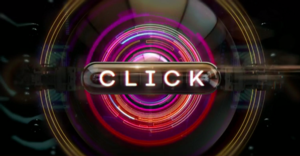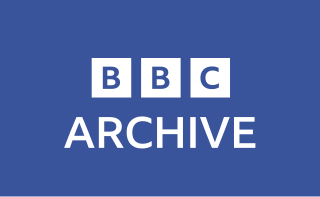Video Nation is a BBC television project in social anthropology and audience interactivity, which ended in 2011.
Video Nation is a BBC television project in social anthropology and audience interactivity, which ended in 2011.
Beginning in 1993, the BBC encouraged people to record their lives on video. These video diaries were then shown on BBC TV and, from 2001 to 2011, were included on the BBC's website.
The original project was created by the Community Programme Unit with output intended for broadcast on BBC Two. Jeremy Gibson and Tony Steyger developed the original concept with Steyger drawing inspiration from the Mass-Observation Archive to propose 'an anthropology of everyday life.' The project was co-produced between 1993 and 2001 by Chris Mohr and Mandy Rose. A diverse group of fifty people were selected from across the UK, given training in the use of camcorders and invited to record aspects of everyday life during the course of a year. From their recordings the team drew material for a range of programmes, of which the best known are the Shorts which were broadcast before BBC Two's Newsnight current affairs programme. Contributors had a right of veto over their material so that nothing was broadcast without their consent. BBC Two de-commissioned the television series in 2000 at which point a website was built from the existing archive. Hundreds of contributors then went on to make shorts for the site, and Video Nation has returned to BBC TV screens during thematic seasons.
On 24 January 2011, the BBC announced that they would be making cuts of 25% to the online budget resulting in a shortfall of £34 million from the budget. As part of this, many websites and services were closed, to achieve a "smaller fitter BBC". Video Nation was part of this category. [1]
BBC Red Button is a brand used for digital interactive television services provided by the BBC, and broadcast in the United Kingdom. The services replaced Ceefax, the BBC's analogue teletext service. BBC Red Button's text services were due to close on 30 January 2020, but the switch off was suspended on 29 January 2020 following protests.

The Goodies were a trio of British comedians: Tim Brooke-Taylor, Graeme Garden and Bill Oddie. The trio created, wrote for and performed in their eponymous television comedy show from 1970 until 1982, combining sketches and situation comedy.

The BBC World Service is an international broadcaster owned and operated by the BBC. It is the world's largest external broadcaster in terms of reception area, language selection and audience reach. It broadcasts radio news, speech and discussions in more than 40 languages to many parts of the world on analogue and digital shortwave platforms, internet streaming, podcasting, satellite, DAB, FM and MW relays. In 2015, the World Service reached an average of 210 million people a week. In November 2016, the BBC announced that it would start broadcasting in additional languages including Amharic and Igbo, in its biggest expansion since the 1940s.
Television broadcasts in the United Kingdom began in 1932, however, regular broadcasts would only begin four years later. Television began as a public service which was free of advertising, which followed the first demonstration of a transmitted moving image in 1926. Currently, the United Kingdom has a collection of free-to-air, free-to-view and subscription services over a variety of distribution media, through which there are over 480 channels for consumers as well as on-demand content. There are six main channel owners who are responsible for most material viewed.

Click is a weekly BBC television programme covering technology news and recent developments in the world of technology and the Internet, presented by Spencer Kelly and Lara Lewington. It was created by then BBC presenter Stephen Cole.

BBC Online, formerly known as BBCi, is the BBC's online service. It is a large network of websites including such high-profile sites as BBC News and Sport, the on-demand video and radio services branded BBC iPlayer and BBC Sounds, the children's sites CBBC and CBeebies, and learning services such as Bitesize and Own It. The BBC has had an online presence supporting its TV and radio programmes and web-only initiatives since April 1994, but did not launch officially until 28 April 1997, following government approval to fund it by TV licence fee revenue as a service in its own right. Throughout its history, the online plans of the BBC have been subject to competition and complaint from its commercial rivals, which has resulted in various public consultations and government reviews to investigate their claims that its large presence and public funding distorts the UK market.

Television Centre (TVC), alternatively BBC Studioworks Television Centre, is a building complex in White City, West London, which was the headquarters of BBC Television between 1960 and 2013. After a refurbishment, the complex reopened in 2017 with three studios in use for TV production, operated by BBC Studioworks. The first BBC staff moved into the Scenery Block in 1953, and the centre was officially opened on 29 June 1960. It is one of the most readily recognisable facilities of its type, having appeared as the backdrop for many BBC programmes. Parts of the building are Grade II listed, including the central ring and Studio 1.

Good Food was a subscription cookery channel broadcasting in the United Kingdom and Ireland, latterly as part of the Discovery, Inc. network of channels. The channel originally launched on 5 November 2001 and relaunched in its final format on 22 June 2009. Good Food was available on satellite through Sky, on cable through Virgin Media, and through IPTV with TalkTalk TV, BT TV. From 2015 to 2018, Good Food was temporarily rebranded as Christmas Food.

BBC News is an operational business division of the British Broadcasting Corporation (BBC) responsible for the gathering and broadcasting of news and current affairs in the UK and around the world. The department is the world's largest broadcast news organisation and generates about 120 hours of radio and television output each day, as well as online news coverage. The service has over 5,500 journalists working across its output including in 50 foreign news bureaus where more than 250 foreign correspondents are stationed.

France 24 is a French publicly-funded international news television network based in Paris. Its channels, broadcast in French, English, Arabic and Spanish, are aimed at the overseas market.
BBC World Service Television, often abbreviated to WSTV, was the name of two BBC international satellite television channels between 1991 and 1995. It was the BBC's first foray into worldwide television broadcasting. In Europe, it was the successor to BBC TV Europe, which it replaced on 11 March 1991. The service was also launched in Asia as a 24-hour news and information service with minor differences, a precursor to BBC World News, launched on 14 October 1991.
BBC HD was a high-definition television channel owned by the BBC. The channel was initially run as a trial from 15 May 2006 until becoming a full service on 1 December 2007 before its discontinuation on 25 March 2013. It broadcast only during the afternoon and evening and only broadcast material shot in high definition, either in a simulcast with another channel or by inserting a repeat of an HD programme.
ABC Television is the general name for the national television services of the Australian Broadcasting Corporation (ABC). Until an organisational restructure in 2017/2018, ABC Television was also the name of a division of the ABC. The name was also used to refer to the first and for many years the only national ABC channel, before it was renamed ABC1 and then again to ABC TV.
Joseph Lidster is an English playwright and screenwriter, best known for his work on the Doctor Who spin-off series Torchwood and The Sarah Jane Adventures.
BBC Switch was the brand for BBC content aimed at UK teenagers. The brand was launched on Saturday 20 October 2007 on BBC Two and ceased broadcasting on 18 December 2010. It included a block of television programmes on BBC Two, an online portal and programming on the BBC's youth radio station, BBC Radio 1. It was BBC Two's second programming block aimed at teenagers, following on from DEF II.
The British Broadcasting Corporation (BBC) is a British public service broadcaster headquartered at Broadcasting House in London, England. Originally established in 1922 as the British Broadcasting Company, it evolved into its current state with its current name on New Year's Day 1927. The oldest and largest local and global broadcaster by stature and by number of employees, the BBC employs over 21,000 staff in total, of whom approximately 17,900 are in public-sector broadcasting.

BBC Archives are collections documenting the BBC's broadcasting history, including copies of television and radio broadcasts, internal documents, photographs, online content, sheet music, commercially available music, BBC products, press cuttings, artifacts and historic equipment. The original contents of the collections are permanently retained but are in the process of being digitised. Some collections are being uploaded to the BBC Archives section of the BBC Online website for visitors to view. The archive is one of the largest broadcast archives in the world, with over 15 million items.

The BBC Genome Project is an online searchable database of programme listings initially based upon the contents of the Radio Times from the first issue in 1923 to 2009. Television listings from post-2009 can be accessed via the BBC Programmes site.
Geoffrey Goodwin is a television and digital executive who has been active for 20 years in both the UK industry and his native Canada. Geoffrey was Head of Strategy for Drama, Entertainment, Comedy, Children’s and Film at the BBC from 2003 to 2007. He also wrote the BBC’s under 18s strategy with Andy Parfitt that helped set out the case for the BBC’s license fee negotiations in 2007. In 2007 Geoffrey set up BBC Switch; a multi-platform brand aimed at teenagers, which he ran for four years. In January 2013, after working for the then CEO of BBC Worldwide John Smith, Geoffrey founded his own production and talent management company, 40 Partners LTD.

BBC Three was a British over-the-top internet television service operated by the BBC. It was launched on 16 February 2016 as a replacement for the linear BBC Three television channel, which closed down the same day but was later relaunched on 1 February 2022. The service produces and streams television and web series aimed at the demographic of 16 to 34-year-olds, with a particular focus on comedy and documentary programming.